The Chair in Science and Society of the Rafael del Pino Foundation prepares the report Ten technologies to boost Spain. Under the supervision of Professor Javier García Martínez, the Chair's team drafts an annual document that identifies the ten emerging technologies that offer a competitive advantage to the Spanish economy and society.

The report Ten technologies to boost Spainis an analysis and prospective work led by the Rafael del Pino Foundation professor Javier García Martínez. The team behind it is made up of Fernando Gomollón Bell and Eugenio Mallol, with editorial coordination by Jordi Sánchez Navas. It is backed by a committee of experts made up of 14 leading figures in science and technology, who contribute their experience and knowledge in various fields.
This report on ten technologies to give Spain a competitive edge does not seek to disseminate the latest and most striking innovations in the field of research, but rather to recognise those science and technology-based initiatives that are in the process of being incorporated into economic activity, by connecting their innovative nature with a high degree of maturity in their development and application.
They are currently members of the Committee of Experts:
María José Alonso Fernández. Editor-in-Chief of the journal Drug Delivery and Translational Research (DDTR). Former President of the Controlled Release Society (CRS). Principal Investigator, CIMUS Research Institute, University of Santiago de Compostela (USC). Professor of Pharmacy and Pharmaceutical Technology at the USC.
Pablo Artal Soriano. Doctor in Physics and Professor of Optics at the University of Murcia. Founder of the technology-based company Voptica. Chairman of the Physics panel at the State Research Agency. National Research Award 2018
María Blasco Marhuenda. PhD in Biochemistry and Molecular Biology. Director of the Spanish National Cancer Research Centre (CNIO). National Research Award 2010.
Lina Gálvez Muñoz. MEP (Vice-Chair of the Committee on Industry, Research and Energy. Member of the Committee on Women's Rights and Gender Equality and the Panel for the Future of Science and Technology). Professor of Economic History and Institutions, Department of Economics, Pablo Olavide University (Seville).
Laura Lechuga Gómez. Research Professor at CSIC (GENCAT-CSIC-UAB), Head of the Nanobiosensors and Bioanalytical Applications Group at ICN2 and CIBER-BBN. National Research Award 2020.
Nuria Oliver Ramírez. Director of Data Science Research at Vodafone. Chief Data Scientist Data-Pop Alliance. Co-founder and scientific advisor to the Ellis Foundation for Artificial Intelligence.
Manuel de León Rodríguez. Mathematician and Doctor in Mathematical Sciences. Research Professor at the CSIC and Academician of the Royal Academy of Exact, Physical and Natural Sciences. Founder and Director of the Institute of Mathematical Sciences (ICMAT).
Susana Marcos Celestino. Director of the Visual Science Center at the University of Rochester. Research Professor and Director of the Visual Optics and Biophotonics Laboratory at the CSIC Institute of Optics. Vice-President of the Scientific Advisory Committee of the State Research Agency. National Research Award 2019.
María Ángela Nieto Toledano. Research Professor at the Institute of Neurosciences (CSIC-UMH) in Alicante, member
of CIBERER and President of the International Society for Developmental Biology (ISDB). National Research Award 2019. Credits Report 2022
Andres Pedreño Muñoz. Professor of Applied Economics, former Rector of the University of Alicante and former CEO of Universia.
Héctor Perea Saavedra. Industrial Engineer. Former Director of Strategy and Business Development at CEPSA.
Emma Fernández. Telecommunications engineer and MBA. She has developed her professional career in the technology sector in leading companies such as Telefónica, Alcatel and Indra. In the latter she was General Manager between 2006 and 2015.
Javier Ventura-Traveset Bosch. PhD in Telecommunications Engineering. Director of the Scientific Office of Satellite Navigation and Executive Secretary of the Scientific Advisory Committee of the Galileo programme of the European Space Agency (ESA), Spokesperson in Spain for ESA and member of the Royal Academy of Engineering of Spain.
Fernando Temprano. PhD in Chemical Sciences and Master in Business Administration. From 2007 to 2017. Former director of Repsol's R&D and technology division, with global responsibility in this area.
Presentation in Madrid in mid-2021
The presentation of the report took place on 17 November 2021 in an event held at the Madrid headquarters of the Rafael del Pino Foundation, with the participation of researcher Sonia Contera, Professor of Physics at Oxford University, and Iñaki Berenguer, investor, entrepreneur and founder of companies such as Coverwallet and Pixable, among others.
The report draws on a long tradition of such documents promoted by leading international organisations and reputable scientific publications. This is the case of the Top ten emerging technologies The World Economic Forum, the World Economic Forum's version of this report, the magazine Scientific American or the selection made each year by MIT with the title 10 breakthrough technologies.
The report, applied to the specific case of Spanish competitiveness, prepared by the Chair in Science and Society of the Rafael del Pino Foundation, incorporates the experience of its director Javier García Martínez, who is a member of the Committee of Experts that draws up the list of the World Economic Forum and participates in the drafting of the publication that Scientific American dedicates to this subject.
-

Telemedicine
Telemedicine harnesses digital resources and advances in telecommunications to bring about a leap forward in healthcare systems. Its impact benefits the most disadvantaged sectors, such as the elderly, the vulnerable sick and people living far from urban centres.
-

Photonics
Photonics has the potential to transform the telecommunications industry, as well as to revolutionise robotics and automation processes, advanced medicine and wearable technologies and quality control checks in different sectors.
-
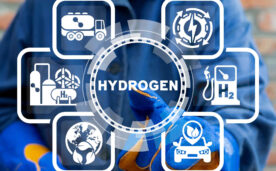
Green hydrogen
Spain can lead the European transition to the hydrogen economy. Our position as a leader in the renewables market guarantees that we will be able to produce green hydrogen in large quantities and at very competitive prices.
-
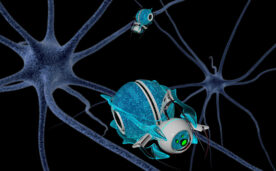
Neuroscience
Machines that anticipate our thoughts and prevent accidents, neural interfaces that improve our memory and advanced implants capable of curing diseases such as Parkinson's or epilepsy will soon be a reality.
-

Mathematics for data processing
Spain leads pioneering initiatives in mathematical research and model development, thanks to the work of universities and the CSIC. However, the importance of mathematics in our economy is still far below that of other European countries.
-

Augmented reality
A commitment to innovation in augmented reality, across all sectors, is a guarantee of success; it will revolutionise healthcare, education, engineering and logistics, as well as transforming activities such as tourism, shopping and leisure.
-
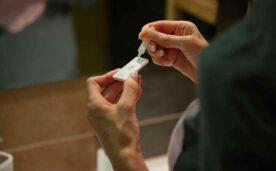
Quick tests
Rapid tests could revolutionise the way we diagnose diseases. According to the WHO, these tests work without the complexity of a testing laboratory, give results within minutes and are easy to use, so they also do not require the intervention of medical professionals.
-

Supercomputing
Supercomputing is a technology that has enabled revolutionary breakthroughs. The development of new, even more powerful computers will transform almost every industrial sector, from the development of new pharmaceuticals and connected health systems to the creation of more efficient manufacturing processes and more sustainable technologies.
-
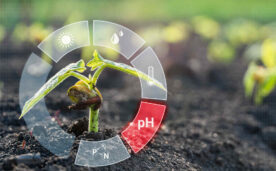
Precision farming
Thanks to satellites, drones, autonomous machinery and artificial intelligence, precision agriculture will be able to reduce greenhouse gas emissions, maximise resource efficiency and crop sustainability.
-
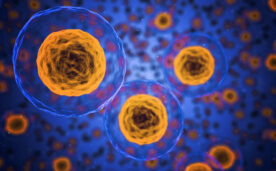
Nanomedicine
The applications of nanotechnology in medicine include diagnosis, treatment, reduction of side effects and even the enormous potential to fight more effectively against infectious organisms such as SARS-CoV-2 or antibiotic-resistant bacteria. For years, Spain has led innovation in the field of nanomedicine. Now...


